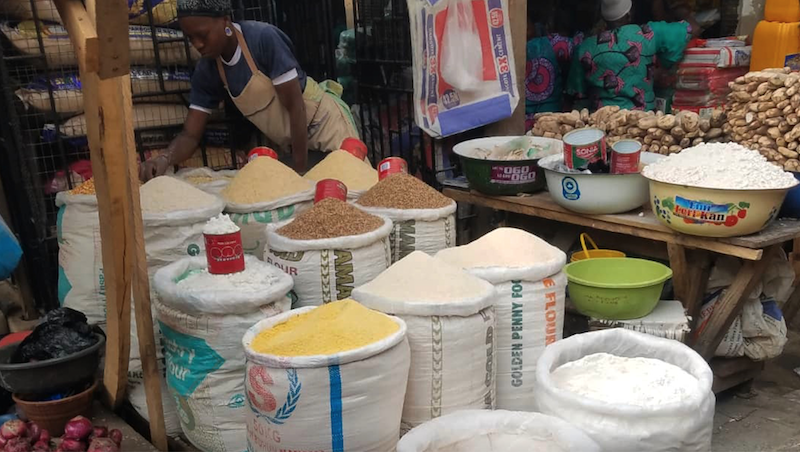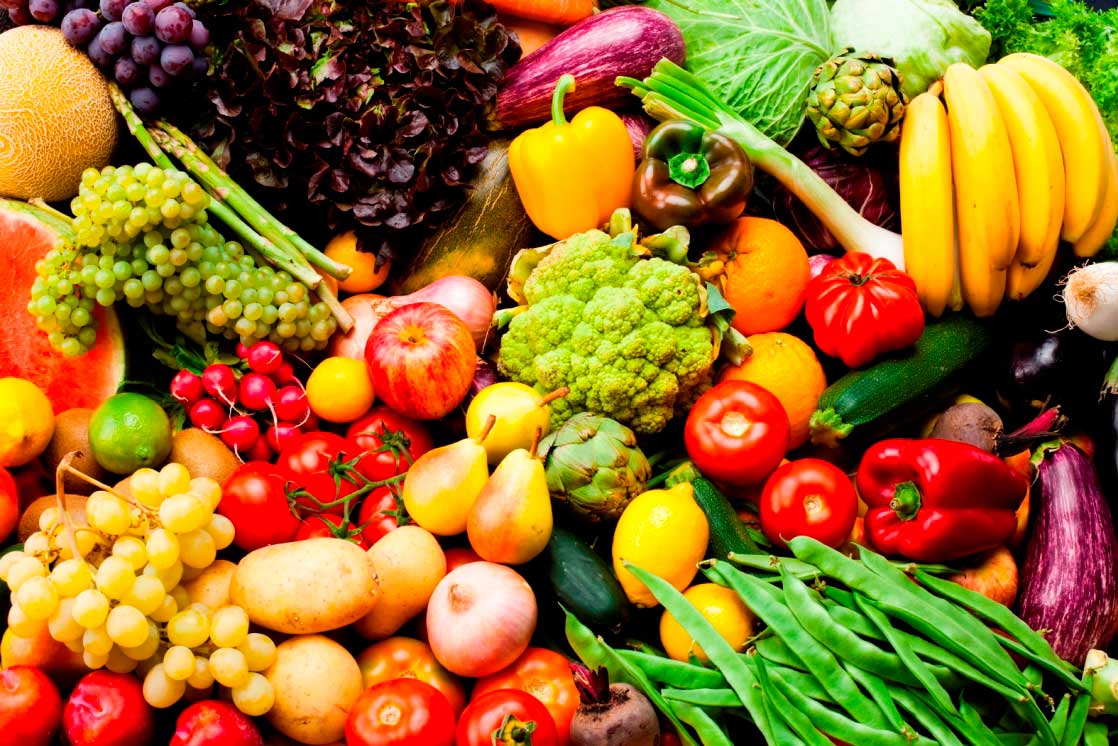The Federal Government has declared all matters pertaining to food and water availability and affordability, as essential livelihood items, to be included within the purview of the National Security Council.
TheNewsGuru.com (TNG) reports this is as the federal government declared a state of emergency on food security in the country.
Mr Dele Alake, Special Adviser to President Bola Tinubu on Special Duties, Communications and Strategy disclosed this during a media briefing on Thursday.
The text of the media briefing reads below:
Gentlemen of the press, i welcome you once again to this press conference to update the public on President Bola Tinubu-led administration’s immediate response to the current food inflation in the country.
As a hands-on- leader who follows developments across the country everyday, Mr. President is not unmindful of the rising cost of food and how it affects the citizens.
While availability is not a problem, affordability has been a major issue to many Nigerians in all parts of the country.
This has led a significant drop in demand thereby undermining the viability of the entire agriculture and food value chain.
Accordingly, in line with this administration’s position on ensuring that the most vulnerable are supported, Mr. President has declared, with immediate effect the following actions:
• That a state of emergency on food security be announced immediately, and
• That all matters pertaining to food & water availability and affordability, as essential livelihood items, be included within the purview of the National Security Council.
As a direct and immediate response to this crisis, a number of initiatives will be deployed in the coming weeks to reverse this inflationary trend and guarantee future uninterrupted supplies of affordable foods to ordinary Nigerians.
As with most emergencies, there are immediate, medium- and long-term interventions and solutions in the immediate term, we intend to deploy some savings from the fuel subsidy removal into the Agricultural sector focusing on revamping the agricultural sector.
In an earlier meeting with Agriculture Stakeholders (today), we drafted a memorandum of partnership between the government and the individual stakeholder representatives that encompasses the decisions taken and actions proposed from our engagements.
The immediate intervention strategies are as follows:
1. We will immediately release fertilizers and grains to farmers and households to mitigate the effects of the subsidy removal.
2. There must be an urgent synergy between the Ministry of Agriculture and the Ministry of Water Resources to ensure adequate irrigation of farmlands and to guarantee that food is produced all-year round. As a country, Mr. President has made it clear that we can no be comfortable with seasonal farming. We can no longer afford to have farming down times.
3. We shall create and support a National Commodity Board that will review and continuously assess food prices as well as maintain a strategic food reserve that will be used as a price stabilisation mechanism for critical grains and other food items.
Through this board, government will moderate spikes and dips in food prices.
To achieve this, we have the following stakeholders on board to support the intervention effort of President Bola Ahmed Tinubu:
The National Commodity Exchange (NCX), Seed Companies, National Seed Council and Research institutes, NIRSAL Microfinance Bank, Food Processing/ Agric Processing associations, private sector holders & Prime Anchors, small holder farmers, crop associations and Fertilizer producers, blenders and suppliers associations to mention a few.
4. We will engage our security architecture to protect the farms and the farmers so that farmers can return to the farmlands without fear of attacks.
5. The Central Bank will continue to play a major role of funding the agricultural value chain.
6. Activation of land banks. There is currently 500,000 hectares of already mapped land that will be used to increase availability of arable land for farming which will immediately impact food output. – Mechanization and land clearing- The government will also collaborate with mechanization companies to clear more forests & make them available for farming
7. River basins- there are currently 11 rivers basins that will ensure planting of crops during the dry season with irrigation schemes that will guarantee continuous farming production all year round, to stem the seasonal glut and scarcity that we usually experience.
8. We will deploy concessionary capital/funding to the sector especially towards fertilizer, processing, mechanization, seeds, chemicals, equipment, feed, labour, etc. The concessionary funds will ensure food is always available and affordable thereby having a direct impact on Nigeria’s Human Capital Index (HCI). This administration is focused on ensuring the HCI numbers, which currently ranks as the 3rd lowest in the world, are improved for increased productivity.
9. Transportation and Storage: The cost of transporting Agricultural products has been a major challenge (due to permits, toll gates, and other associated costs). When the costs of moving farm produce is significantly impacted- it will immediately be passed to the consumers, which will affect the price of food- the government will explore other means of transportation including rail and water transport, to reduce freight costs and in turn impact the food prices. As for storage, existing warehouses and tanks will be revamped to cut waste & ensure efficient preservation of food items.
10. We will Increase revenue from food and agricultural exports. As we ensure there is sufficient, affordable food for the populace, we will concurrently work on stimulating the export capacity of the Agric sector…
11. Trade Facilitation: Transportation, storage and export will be improved by working with the Nigerian Customs, who have assured us that the bottlenecks experienced in exporting and importing food items as well as intra-city transportation through tolling will be removed.
These are some of the immediate interventions this government will put in place to tackle this crisis. Principally, one of the major positive outcomes of these interventions will be a massive boost in employment and job creation.
Indeed, agriculture already accounts for about 35.21 percent of employment in Nigeria (as at 2021), the target is to double this percentage to about 70% in the long term.
President Bola Ahmed Tinubu’s mandate to create jobs for our teeming youth population will be achieved with between 5 to 10 million more jobs created within the value chain, working with the current 500,000 hectares of arable land and the several hundreds of thousands more farmlands to be developed in the medium term.
In closing, this administration understands that food and water are the bedrock of survival and therefore is calling on all Nigerians to partner us in ensuring the success of this strategic intervention.
This administration is working assiduously to ensure that Nigerians do not struggle with their essential needs.
President Bola Ahmed Tinubu wishes to use this medium to continue to assure Nigerians that this administration will not relent in its efforts until all strategic interventions are deployed efficiently and effectively and until every household is positively impacted.
Our president is the president of all Nigerians and the father of the nation. The renewed hope mandate remains alive, and no one, absolutely no one, will be left behind. I thank you all.





